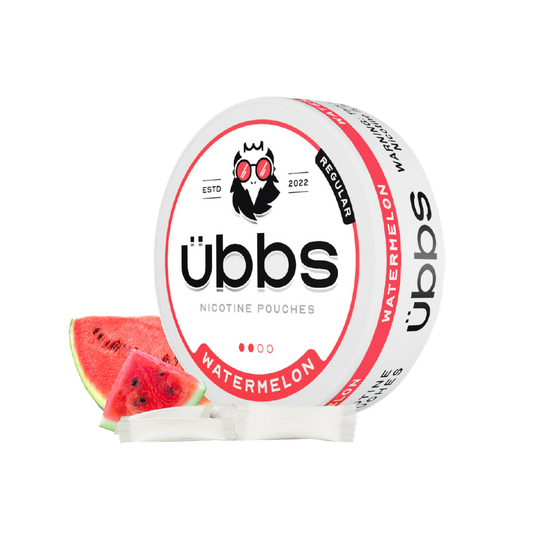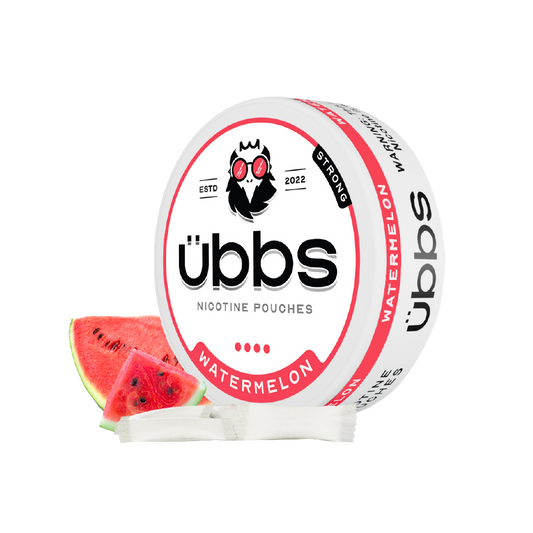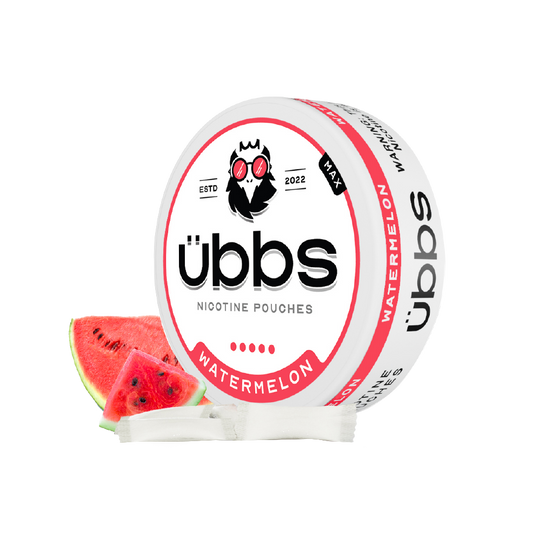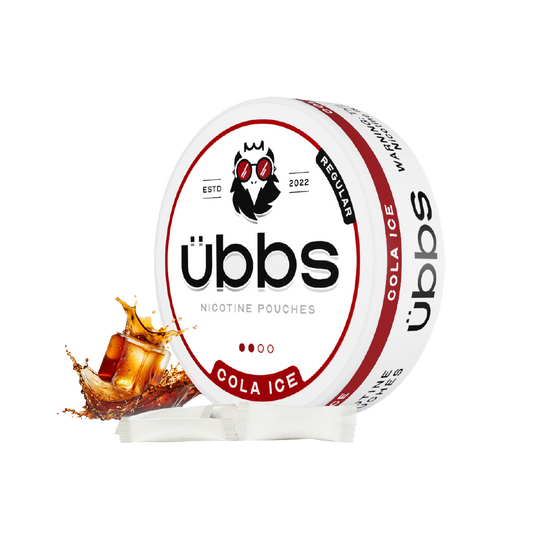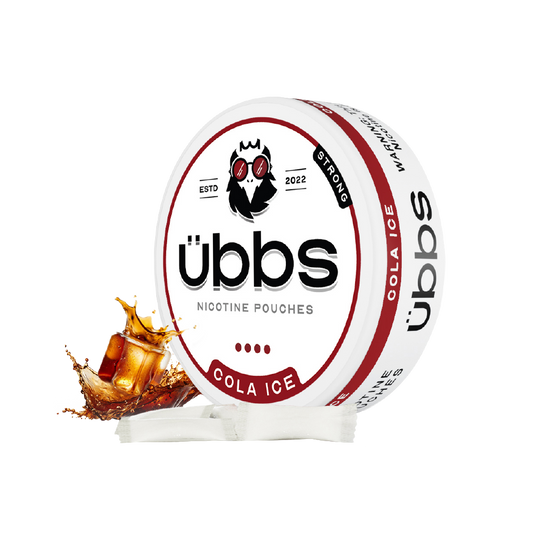What is Snus and is it Legal in the UK?
There's been a growing curiosity around snus in the UK, particularly among those seeking alternatives to traditional smoking. Whether you've heard about it from friends, seen it mentioned online, or are simply exploring different nicotine products, you're probably wondering what all the fuss is about.
While snus is illegal in the UK and EU, knowing what it is (and why it’s banned) is still useful. The more clued-up you are about nicotine products, the easier it is to figure out what’s safe, legal, and right for you.
In this guide, we’ll break down what snus actually is, where it comes from, and how it stacks up against the nicotine alternatives you can get here in the UK. By the end, you’ll know why snus is regulated the way it is, and what legal options might be a better fit for your lifestyle.
What is Snus?
The British pronunciation is "snus", like “fuss” with a short vowel sound. The American pronunciation is “snoose” with an extended ‘oo’ sound (like "moose" with an 'sn').
Snus is a smokeless tobacco product that started out in Scandinavia. Unlike cigarettes you light up or chewing tobacco you bite into, snus is used differently. A small pouch is tucked under your top lip, where it slowly releases nicotine through your gums.
It’s designed to be simple, discreet, and steady; no smoke, no spitting, no fuss. In today’s market, nicotine pouches are gaining popularity because they offer the same discreet nicotine experience as snus, without containing tobacco leaf.
History of Snus
The story of snus goes way back, with roots stretching across Europe and America. Here’s a quick look at how it all unfolded:
18th Century Origins:
Snus first appeared in Swedish high society during the 1700s. Back then, it was a bit of a status symbol for the wealthy before eventually trickling down to the wider population.
19th Century Evolution:
Swedes shifted from sniffing powdered snuff to placing moist snus under the lip, the method we’d recognise today. Local production ramped up, and Swedish emigrants carried the habit with them to America.
Early 20th Century Boom:
By the 1910s, snus was booming in Sweden. In 1919 alone, around 7,000 tons were sold, that’s about 1.2kg per person in a country of six million!
Mid-Century Decline:
After World War II, cigarettes surged in popularity thanks to aggressive marketing, and snus use dropped sharply.
Modern Renaissance:
As health concerns around smoking grew in the 1960s and ’70s, snus made a comeback. The introduction of portion-packed snus (small pouches, easier to use) gave it a modern edge and helped it stay relevant.
Is Snus Legal in the UK?
Here's the straightforward answer: no, snus is not legal for sale in the UK.
The ban goes back to a 1992 EU ruling that blocked sales across Europe, with one big exception: Sweden. The decision was driven by health concerns at the time: snus was considered a harmful tobacco product that could increase the risk of oral cancers, gum disease, and other mouth-related health problems.
Even after Brexit, the UK decided to stick with the same rules. So while a lot of EU laws were up for review, the snus ban stayed firmly in place. That means you still can’t legally pick it up here in Britain.
Sweden is the outlier. When it joined the EU, it negotiated to keep snus as part of its tradition, so it remains the only EU country where it’s legally sold today.
What Does Snus Look Like?
Understanding what snus looks like can help you identify different types and understand how they're used.
Loose Snus:
This is the traditional form and appears as fine, moist tobacco that resembles wet coffee grounds. It has a dark brown colour and a slightly sticky texture due to its moisture content. Individuals take a pinch of loose snus and form it into a small wedge before placing it under their lip.
Pouch Snus:
These are small fabric pouches, think a tea bag but much smaller, that contain measured amounts of snus. The pouches are typically white or light-coloured and made from a porous material that allows nicotine absorption while keeping the tobacco contained. This format is more convenient and less messy than loose snus, making it popular among modern consumers.
Both varieties serve the same function. Pouch snus offers greater convenience and consistency, while loose snus provides a more traditional experience with flexibility in portion size.
What is Snus Made of?
Snus contains several key ingredients that work together to create the final product:
-
Tobacco: This forms the base of snus and is the primary source of nicotine. The tobacco used is typically ground to a fine consistency and specially processed for oral use.
-
Water: Essential for maintaining the moist texture that distinguishes snus from dry tobacco products.
-
Cooking Salt: Added both for preservation and to enhance the absorption of nicotine through the mouth's mucous membranes.
-
Sodium Carbonate: This alkaline compound helps regulate the pH level, which affects nicotine absorption and the overall experience for individuals.
-
Aromatic Compounds: Often including bergamot or juniper, these natural flavouring agents give snus its distinctive taste profile. Different brands may use various aromatic compounds to create unique flavour signatures.
-
Moisture Preserving Agents: These help maintain the product's consistency and prevent it from drying out over time.
The specific ratios and additional ingredients can vary between manufacturers, but these core components form the foundation of most snus products.
Snus vs Nicotine Pouches
Since snus isn't available legally in the UK, it's worth understanding how it compares to nicotine pouches, which are legal and readily available.
|
Aspect |
Snus |
Nicotine Pouches |
|
Tobacco Content |
Contains actual tobacco |
Completely tobacco-free |
|
Legal Status in the UK |
Illegal for sale |
Completely legal and widely available online and in retail stores |
|
Nicotine Delivery |
Gradual release through tobacco matrix |
More consistent nicotine release with faster initial absorption |
|
Flavour Profile |
Distinctively earthy, tobacco-based flavour |
Wide range of flavours including mint, citrus, berry and tropical fruits |
|
Consumer Experience |
Traditional tobacco taste and texture |
Variety of tastes and textures to suit virtually every preference |
Snus vs Other Nicotine Products
To fully understand where snus fits in the nicotine product landscape, it's helpful to compare it with other popular options.
|
Aspect |
Snus |
Cigarettes |
Vaping |
Chewing Tobacco |
|
Historical Context |
Traditional Scandinavian tobacco product with centuries of history |
Traditional tobacco product with over a century of global usage |
Modern electronic delivery system using contemporary technology |
Traditional American tobacco product with regional popularity |
|
Delivery Method |
Oral mucosal absorption - slower, sustained release (30-60+ minutes) |
Combustion and inhalation - rapid delivery, shorter duration |
Vapour inhalation into lungs - adjustable intake |
Oral absorption with chewing action |
|
Technology |
Centuries-old tobacco preparation techniques |
Traditional tobacco burning |
Electronic vapourisation of liquid nicotine |
Traditional tobacco processing |
|
Customisation |
Provides a consistent, predetermined nicotine effect over a longer period |
Limited control per cigarette, though multiple cigarettes can be smoked. Rolling tobacco can also offer more control over how much is consumed in each smoke. |
High flexibility: users can adjust how much nicotine they take in and how long each session lasts |
Moderate control through chewing frequency |
|
Social Discretion |
Very discreet - no smoke, odour, or visible vapour |
Low discretion - smoke, odour, visible use |
Moderate discretion - visible vapour, some odour |
Low discretion - requires spitting |
|
Usage Mechanics |
Place between upper lip and gum, no spitting required |
Light and inhale smoke |
Inhale vapour from device |
Chew tobacco, requires frequent spitting |
|
UK Legal Status |
Illegal for sale |
Legal with restrictions (age limits, packaging) |
Legal with recent disposable product bans |
Legal in specialty shops |
|
Health Research |
Limited research on smokeless tobacco risks |
Extensive research showing combustion-related health impacts |
Ongoing research on vapour-related effects |
Limited research compared to cigarettes |
|
Popularity Trends |
Popular in Nordic countries where legal |
Declining in UK due to health awareness |
High UK adoption, especially younger demographics |
Limited cultural presence in UK |
For those considering alternatives to smoking, we offer an insight into the best times to quit smoking in our expert guide.
A Modern Take on a Nordic Classic
Snus has deep roots in Scandinavian culture, but it’s not legal in the UK. If you’re looking for an alternative to smoking and curious about snus’ appeal, nicotine pouches offer a modern, tobacco-free alternative: delivering discreet, long-lasting satisfaction in a variety of strengths and flavours.
Explore the full range at übbs, and find a pouch that fits your preferences.







